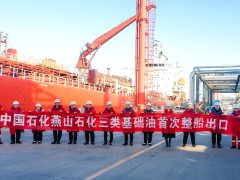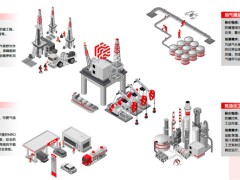据7月7日彭博社报道,近一周的正式和非正式谈判以及幕后谈判未能解决关于欧佩克+基准产量水平的争议,这一分歧使欧佩克陷入了自2020年3月以来最严重的危机。要知道,当时全球需求在疫情中大幅下降的情况,而欧佩克领导人沙特阿拉伯和俄罗斯在石油供应管理问题上出现了分歧。
现在,这一争端发生在欧佩克的两个阿拉伯海湾盟国——阿联酋和沙特阿拉伯之间。分析人士认为,阿联酋正寻求走出沙特在全球政治事务中的影响范围。
阿联酋坚持自己的立场,要知道,如果欧佩克+承认阿联酋的减产基准太低且“不公平”,它就会批准增加市场供应。
但是,欧佩克+连续五天未能克服分歧,这让人们想起了去年的油价战争,当时该联盟在一个月内放弃了所有协议。交易员和分析师发出一连串的疑问,如这场纠纷是否会再次导致生产协议消散?由于美国页岩气产量保持平稳,且没有破坏欧佩克为保持市场供应紧张所做的努力,欧佩克在石油市场管理方面的坚定控制力会因此下滑吗?
三次协商失败,局势堪忧。
尽管上周末进行了调解、磋商和边谈,在两天都没有达成一致意见后,欧佩克+周一第三次协商失败,取消了欧佩克+会议,并表示尚未决定下次会议召开的时间。
由于没有达成在8月增产的协议,欧佩克+目前可能将维持与7月份持平的供应。考虑到全球石油需求正在反弹,市场最初预计8月份该联盟的产量至少会增加50万桶/天,但现实让油价随即跃升至三年来的最高水平。
Vanda Insights表示:" 市场开始考虑欧佩克+不会在8月再增加供应的可能。”
每桶90美元的油价?在库存减少、需求回升的情况下,没有额外的供应,可能会在短期内推高油价,至少在欧佩克+达成某种协议之前会这样。
行业咨询公司FGE董事长Fereidun Fesharaki表示,如果欧佩克+下个月不增加供应,油价可能会跌至每桶85 - 90美元。Fesharaki预计,欧佩克将在未来一到三周内达成某种妥协,在此期间油价将继续上涨。
Energy Aspects研究总监Amrita Sen对彭博社表示:“8月份现货市场异常紧张,没有额外的石油供应,很容易导致油价超过每桶90美元。”
会爆发新一轮的价格战?
阿联酋和欧佩克+之间的分歧似乎比最初设想的更大,此前,欧佩克+召开第一次会议,未能就未来的石油政策达成共识。但至少就目前而言,很少有分析人士认为,从2020年春季开始,短暂的石油价格战将重演,要知道,当时欧佩克+产油国随意产油,并促成油价暴跌,且油价暴跌的影响仍在大多数欧佩克+经济体中显现。
瑞士信贷(Credit Suisse)在一份报告中表示,目前8月份增加供应的僵局有可能在短期内将布伦特原油(Brent Crude)价格推高至每桶80美元。周二早间,布伦特原油交易价高于每桶77美元,西德克萨斯中质原油交易价高于每桶76美元。
瑞士信贷分析师表示:“如果沙特和阿联酋无法解决彼此的分歧,可能会导致双方各执一词,重新陷入价格战,这对能源投资者来说是一种严峻的局面。”
欧佩克+面临的风险比配额基准大得多。
但是,能源基金的首席投资官们表示,这种“严酷的情况”是目前僵局最不可能出现的结果之一。加拿大一家能源基金的首席投资官表示:“在产量大幅增加的情况下,出现破坏性崩溃的可能性很低,这种情况不会发生。”一位驻伦敦的首席投资官表示:“我们认为印度和欧洲需求强劲,存在实际供应风险,浪费这个机会不符合欧佩克的利益,油价有望在未来六个月升至每桶90 - 100美元。”
因此,投资机构并不认为因此。因为在一年多的时间里,欧佩克努力表明自己在石油市场的低位,如果欧佩克想要再次成为主要的石油市场推动者,那么谈判破裂是非常不明智的。目前不可能出现破坏价格的“不交易”行为,要知道,如今欧佩克+在市场上拥有几十年来最强的影响力,它们不会放弃这一切。”
王佳晶 摘译自 彭博社
原文如下:
OPEC Stalemate Could Spark A New Oil Price War
Nearly a week of formal and side talks and behind-the-scenes negotiations failed to resolve a dispute over baseline production levels at OPEC+. The discord threw the group in its most serious crisis since March 2020, when the alliance’s leaders Saudi Arabia and Russia disagreed on oil supply management with global demand crumbling in the pandemic.
Now the dispute is between two Arab Gulf allies in OPEC—the United Arab Emirates and Saudi Arabia—in what analysts see as the UAE looking to step out of the Saudi shadow in global political affairs.
The UAE is digging in its heels, making its approval of OPEC+ adding more supply to the market contingent on the group acknowledging that the UAE’s baseline for the cuts was too low and “unfair.”
The disagreement, which OPEC+ has been unable to overcome for five consecutive days, is bringing back the specter of last year’s oil price war when the alliance abandoned all deals for a month. Traders and analysts have already started to ask themselves: is this the dispute that will dissolve the production pact again? And will OPEC+ let its firm grip on oil market management slip, after being in such a favorable position this year with U.S. shale keeping production flat and not unraveling the alliance’s efforts to keep markets tight?
Third Time’s Not a Charm
Despite mediation, consultations, and side talks in the weekend – after two days of ‘no deal’ outcome of meetings – OPEC+ failed a third time on Monday, called off the OPEC+ meeting, and said it hadn’t decided yet when the next meeting would be held.
The lack of agreement overproduction for next month likely means that OPEC+ will keep, for now, their production in August flat compared with July. This immediately sent oil prices jumping to the highest in three years, considering that global oil demand is bouncing back and the market was initially expecting at least a 500,000-bpd increase from the alliance in August.
“The market began factoring in the prospect of no additional supply hike from the OPEC/non-OPEC alliance in August,” Vanda Insights said in a daily note on Tuesday.
$90 Oil? No additional supply at a time when inventories are drawing down and demand is roaring back will likely send oil prices higher in the near term, at least until the group reaches some sort of a deal.
Oil at $85 to $90 a barrel is on the cards if OPEC+ doesn’t raise supply next month, Fereidun Fesharaki, chairman of industry consultant FGE, told Bloomberg TV in an interview. Fesharaki expects the group to reach some sort of compromise over the next one to three weeks, during which oil prices will continue to rise.
“No additional oil in August, at a time when the physical market is incredibly tight, can easily lead to prices overshooting above US$90 a barrel,” Amrita Sen, Director of Research at Energy Aspects, told Bloomberg.
New Price War?
The UAE-OPEC+ rift, however, now appears wider than initially thought on Thursday last week, when the first OPEC+ meeting failed to reach a consensus on oil policy going forward.
But at least for now, few analysts believe that there will be a repeat of the brief oil price war from the spring of 2020, when the OPEC+ producers pumped at will for a month and contributed to the crash in oil prices, the effects of which are still being felt in most OPEC+ economies.
Credit Suisse, in a note late on Monday, said the current impasse about raising supply in August had the ability to push Brent Crude to $80 a barrel in the near term. Early on Tuesday, Brent was trading above $77 and WTI was up above $76 a barrel.
“If Saudi and UAE are unable to resolve their differences, then it could lead to each man for himself approach and back to price wars, which is a draconian scenario for energy investors,” Credit Suisse analysts said.
OPEC+ Has Much More at Stake Than Quota baselines
This ‘draconian scenario’, however, is one of the most unlikely outcomes of the current deadlock, according to chief investment officers of energy funds who joined a live chat on Bloomberg on Monday with Lawrence McDonald, founder of The Bear Traps Report.
“[T]here is a low probability of a destructive breakdown with a large boost in production, that’s not happening,” an energy fund CIO in Canada said.
“We see strong demand (India, Europe) with real supply risk, it is not in OPEC’s interest to blow this opportunity,” a CIO in London said, noting that oil has a shot at $90 to $100 a barrel in the next six months.
Institutional investors, therefore, don’t see the OPEC+ pact breaking up, as it would be very unwise for the alliance to be sidelined as the key oil market mover again, after working for more than a year to show it is calling the shots (and burning the shorts) in the oil market.
“We do not believe that a price-destructive “non-deal” is in the cards at this time. This is the strongest period OPEC+ has had in the market in decades and they don’t want to give that all up,” The Bear Traps Report’s McDonald notes.
免责声明:本网转载自其它媒体的文章,目的在于弘扬石化精神,传递更多石化信息,并不代表本网赞同其观点和对其真实性负责,在此我们谨向原作者和原媒体致以敬意。如果您认为本站文章侵犯了您的版权,请与我们联系,我们将第一时间删除。







